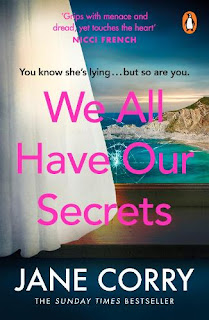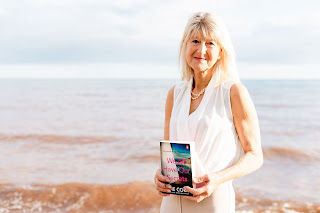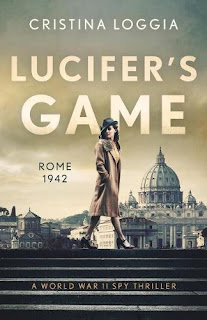Meet Jane Corry Author Of We All Have Our Secrets
Who exactly is the cuckoo in the nest? That's what Emily wants to know when she returns home and finds a woman living with her father, in Jane Corry's latest novel released now in paperback. Amongst all the buried secrets and lies, what exactly is the truth?
Corry tells TW about her inspiration for the novel and its setting, the impact working as a writer in residence at a prison had on her work, her writing process and the historical crime she'd most like to crack...
Download the ebook or paperback of We All Have Our Secrets from Amazon. It's also available from all good bookshops - at Thriller Women we encourage supporting your local independent bookshop if you can.
TW: Congratulations on the paperback launch of We All Have Our Secrets. It's such a claustrophobic and menacing premise, Emily returning to her family home on the Cornish coast and discovering a stranger living with her father. How did you come up with the idea?
JC: As a teenager, I used to visit an old lady whose elderly brother in law still suffered panic attacks from fighting in the Second World War. This has haunted me over the years. At the same time, like many adult children, I know how hard it is to help an elderly parent living many miles away. My second husband and I moved to the sea nearly 13 years ago so it’s become a constant setting for my novels. All three factors were influential when writing We All Have Our Secrets.
TW: We all tell little white lies occasionally but what made you want to write about huge lies and buried secrets? Is it ever acceptable not to tell the truth?
JC: I wanted to hook my reader in. Lies are fascinating because we know they’re wrong and yet at the same time, lots of people tell them. ‘Little lies’ can grow into big ones. They can also be interpreted as inconsequential by some and life-changing by others. Buried secrets are different. They are part of a quest to find out why they are buried and what the secret is. Readers love quests. So do I as an author!
Your last question about whether it’s ever acceptable not to tell the truth is a good one. Personally, I now always tell the truth, even if it’s a ‘Do I look good in this outfit?’ question. I feel a lot better for it. So it’s rather ironic that my characters don’t always do the same!
TW: You began your author career writing romance. What made you switch to crime?
JC: I can tell you this in one word. Prison! My weekly column on a well-known women’s magazine came to an end after many years because a new editor started and changes were made. It’s a common story. But it happened to coincide with the breakdown of my first marriage and although I had maintenance, I needed a steady income. Thanks to a neighbour, I spotted an ad in The Guardian for a writer in residence of a prison. I didn’t want the job but applied out of financial necessity. I was hooked from day one. I was also scared every time I went in. It was a curious emotional combination! I became very interested in how prison affected family relationships and also others on the fringe ranging from lawyers who went in to deal with appeals and writers like me. So I began to write about ordinary families whose lives were overturned by someone who had committed a crime.
TW: Did this former role at a male high security prison change your view about the perpetrators of crime and if so, how?
JC: Yes. I realised that one can never generalise about ‘the type’ of people who commit crimes or why they did it. I came across former heads of companies; lawyers; accountants; cleaners; homeless people; drug runners; you name it. Some broke the law because they were desperate for money; had learned it from their mother’s knee; were bored with ‘ordinary life’; or had made a terrible mistake for reasons they can’t describe. I also realised that there but for the grace of God, almost anyone might end up in prison under certain situations. For example, in my first week, a man insisted on telling me why he was there. He’d been doing 50 mph in a 40 mph area and ran into another driver who came out of a side road, apparently without stopping. ‘My punishment,’ he told me, ‘is knowing I killed a man.’ His mother was unable to leave the house through shame. I like to think I’m a careful driver. But that story has made me even more so.
TW: How long does it usually take you to write a book and do you have a few ideas on the go at the same time? What's your writing routine?
JC: I write about 2,500 words every day, six days a week for three to four months. This gives me my first draft. Then it goes to my editor who makes suggestions for the structural edit before the line edit. After that, it is sent to the copyeditor and the ms might go back and forth between the two of us for a while. The whole process from first line to publication is a year. I usually get an idea for the second novel when I’m halfway through the one I’m writing, if not before.
I become very restless if something stops me writing during my best time (the morning). But I also love being a hands-on grandmother. In many ways, I’m now juggling family and writing just as I did when my own three children were small. But I wouldn’t have it any other way.
TW: Are there any novel ideas you wish you'd thought of first before another writer?
TW: Are there any novel ideas you wish you'd thought of first before another writer?
JC: During my romantic fiction stage, I actually had two books turned down because someone else had pipped me to the post with the same idea! It happens. Which authors do you admire? I like to read outside my genre. I love Salley Vickers; Maggie O’Farrell; Monica Ali; Anne Tyler. I rarely read non-fiction but right now I’m reading a book called The Ralph Story by Martyn Bradley (Wellington Books) about the author’s search for his birth mother over fifty plus years. I heard about it on Saturday Live, my favourite radio programme, and was very moved.
TW: Any exclusives for Thriller Women readers about your next book?
JC: Yes! It’s a time slip set in a real place. And I’m SO excited about it!
TW: Any exclusives for Thriller Women readers about your next book?
JC: Yes! It’s a time slip set in a real place. And I’m SO excited about it!
TW: If you weren't a writer what would your back up job be and why?
JC: I can’t imagine not writing. I’d be terribly unhappy and impossible to live with. But if pushed, I would be an artist. Not a very good one. But I do love dabbling with watercolours and making flower cards.
Quick fire questions:
TW: Favourite holiday destination you've been to?
JC: Lake Louise in Canada. I was mesmerised by the light and colours.
TW: Holiday destination you'd most like to visit?
JC: Vanuatu because one of my favourite cousins lives there. (I come from a multi-national family and we are very close especially as we are fast becoming the ‘older generation’. Thank goodness for our What’s App group!)
TW: Favourite way to relax?
JC: Swimming in the sea every morning at 7am, throughout the year (before it was fashionable!).
TW: Historical crime you'd most like to crack?
JC: What really happened to the Princes in the Tower. My mother (who died far too young) introduced me as a teenager to Josephine Tey’s novel The Daughter Of Time. I was riveted.
Thanks Jane!
More about We All Have Our Secrets:
Two women are staying in Willowmead House. One of them is running. One of them is hiding. Both of them are lying.
Emily made one bad decision, and now her career could be over. Her family home on the Cornish coast is the only place where she feels safe. But when she arrives, there's a stranger living with her father. Emily doesn't trust the beautiful young woman, convinced that she's telling one lie after another. Soon, Emilybecomes obsessed with finding out the truth...
But should some secrets stay buried forever?




What an inspiring story. Regard Teknologi Telekomunikasi
ReplyDelete